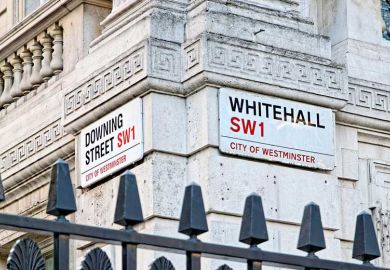There are fears the Conservatives might pledge to scrap the UK’s graduate visa route in their election manifesto, putting pressure on Labour, if a review of the route does not first lead to its abolition.
After first indicating in December that the route would be reviewed by the government’s Migration Advisory Committee (MAC) within a wider “plan to cut net migration”, home secretary James Cleverly finally set out the terms of reference for a “rapid review” earlier this month, asking the committee to report by 14 May.
That drew an unusually strong response from the MAC chair, Brian Bell, professor of economics at King’s College London, who warned Mr Cleverly that the timescale was “much shorter than a normal commission” and would “substantially limit the quality and quantity of evidence” the report can provide.
The timing of Mr Cleverly’s 14 May deadline for the MAC has raised suspicions for some, given that just nine days later the Office for National Statistics (ONS) is expected to publish net migration figures for 2023 that are likely to deliver bad news for a government seeking to reduce net migration.
“The government clearly wants to deflect attention from the immigration figures due in May, but a rushed job on the graduate route for nakedly political ends would be highly irresponsible,” said Lord Johnson of Marylebone, the Conservative former universities minister.
“It would hobble our universities’ ability to compete globally, starve the sector of the resources needed to fuel our science ambitions and deprive the UK of its single most powerful tool of soft power. In other words, a shocking act of self-harm.”
Even if the review did not lead to the full abolition of the route – which allows overseas graduates of UK universities to stay in the country for two years after graduation – that might not be the end of the political pressure. Conservative backbenchers have argued that the route has become a backdoor for low-skill immigration, propping up “inadequate institutions”, and should be scrapped. Meanwhile, Labour, which would also be under pressure to cut net migration if it takes power, has remained silent on graduate visas and the MAC review.
Vivienne Stern, the Universities UK chief executive, said she thought there was “a very high risk of a manifesto from the Conservative Party that includes a commitment to removing the graduate route”.
Diana Beech, chief executive of London Higher and a former adviser to Conservative universities ministers, said that if the MAC review stopped short of recommending complete abolition, “the Conservatives may well channel the frustration with the MAC’s recommendation into their upcoming manifesto, which may well contain a pledge to abolish the route completely in a bid to appeal to immigration-sceptic voters”.
“Whether Labour’s warm words for universities and international students will translate into positive action on this issue is yet to be seen,” she added.
Ms Stern said that UUK’s data and visa figures showed “the peak [in international student enrolment] has passed and we are now seeing international student numbers modestly in decline, quite significantly in decline for the January intake”.
“If you go any further, you’re going to do real damage, not only to the university sector but also to the wider economy,” she added.
Nick Hillman, director of the Higher Education Policy Institute (Hepi), said that the MAC was “clearly very annoyed with how this particular review has got off the ground”, opening “possibly a better opportunity than usual for the sector to influence the MAC – if only we act swiftly”.
Labour appeared to be “hiding behind the government…failing to carve out a clear policy of their own”, he added, noting that while “the sector expects a Labour government to be more welcoming to international students”, that “seems to be based on hope rather than evidence”.
Register to continue
Why register?
- Registration is free and only takes a moment
- Once registered, you can read 3 articles a month
- Sign up for our newsletter
Subscribe
Or subscribe for unlimited access to:
- Unlimited access to news, views, insights & reviews
- Digital editions
- Digital access to THE’s university and college rankings analysis
Already registered or a current subscriber? Login








